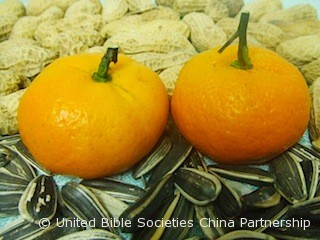
28 year-old backroom operations and sales worker Yu Kai, shares about the heart of service, love, fellowship, outreach and her personal thoughts about what Christmas meant to her. In the following text, Yu recounts how Christmas was celebrated by a small church congregation in the outskirts of Beijing City.
“Like many young people in China, I left home and traveled a long way for work, from Anhui province to the outskirts of Beijing City. The local town population had lost many young people as many had left to study or work in the other cities. Only the elderly stayed in their hometowns.
I asked around for a church and found one remotely located with a small congregation size of 200 people. They did not have a church building but rented a row of houses for meetings. Similar to the demographic trends of this town, this church had mostly elderly believers. Not surprisingly, the older believers were delighted to see me, a younger sister-in-Christ, in their midst. I grew spiritually among them, served in the church choir and sang praises to God with them. It was much later that I found out that the older believers had prayed for a long time for young people to join their choir. I was an answer to their prayers.
In October each year, our small congregational choir would begin to plan for performances like songs and dances to celebrate Christmas. Each week, we would practice after Sunday service then enjoy a simple lunch and dinner in church together. Our food was simple, plain buns made from white flour. We ate, laughed and chatted, happy to be able to enjoy God’s Grace and Love when doing God’s work.
Even though our performance was simple, the elderly brothers-and-sisters-in-Christ would devote all their time and efforts to prepare for the Christmas program. Sometimes they would share their inner struggles of inadequacies and unworthiness to sing for the Lord. But I knew that deep down inside, they felt privileged to be involved in serving God with all their love and strength; and that the Lord will value their hearts and dedication. I remembered one year, we had a joint Christmas praise concert with another church in Beijing. A group of us practiced until 2 am in the morning. Winter in Beijing was bitterly cold and that early morning, the temperature was freezing. However, we felt only joy when we thought of working for the Lord and privileged that we would have this opportunity to serve Him.
What always touched me greatly during Christmas time in China is the constant reminder of this verse in the Bible, “… Love the Lord your God with all your heart, with all your soul, and with all your mind. This is the greatest and the most important commandment. The second most important commandment is like it: Love your neighbor as you love yourself.” (Matt 22:37,39 (GNT)).

One year, we rented the hall of an office building for a Christmas Eve party. We put up bright red and green garlands with paper-cut flowers to decorate the windows and prepared peanuts and melon seeds for snacks. Then we put some peanuts, melon seeds, and a small mandarin orange into small bags and gave them as gifts to everyone who came for the Christmas Eve party. We named the gift bag “Peace Fruit” in Chinese (平安果). Each guest would be blessed with the “Peace Fruit” when they come to the party. In this way, we used this as an opportunity to share the gospel and welcome non-believers warmly, hoping that they too can experience God’s peace. That year, we had a total of 400 guests at the party.
Christmas for me is a time to reflect on the year that has passed and to look forward to the New Year. I give thanks to God every time I think about how He chose to come down to earth in human form to bring salvation to man. I have so many relatives and friends who have yet to know God – well, I still have a lot of work to do, for the Glory of God.
Chinese testimony written by Yu Kai.
Translated by Eileen Sung
Edited by Ms. Yeo Tan Tan and Pamela Choo







